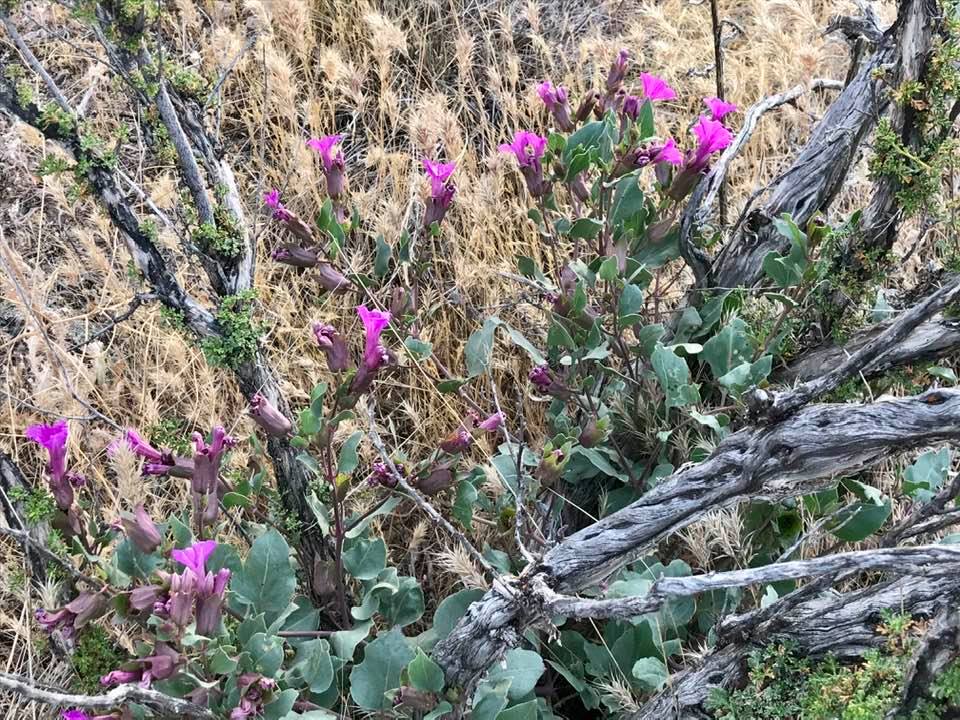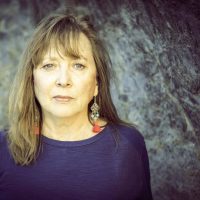Last week, I had a landscaper deliver and spread mulch on the few garden beds I have.
He’d been out to my place before and is dependable. It’s been a trial over the last several years, finding plants that the wildlife in this outback won’t eat and that can tolerate drought conditions.
It’s certainly been a trial this year in so many ways. Even the flowering plants have largely hidden their color, choosing instead to retain their blooms, leaves frequently curled inward to protect themselves against the raging hot winds.
At dusk, I wandered out to admire what the workers had accomplished. When I rounded the slope alongside my long dirt driveway, I stopped short. I felt a pang in my heart and nearly burst into tears.
Seeking solitude, I moved to this particular spot nearly 20 years ago because I would have a clear view of the San Francisco Peaks nearly 90 miles to the north. They were precious to me, precious to the Indigenous peoples of Northern Arizona.
When I walked this land back then and noticed small mounds dotting the hillside with waxy leaves on branching stems holding quarter-size violet flowers, it cinched my choice. For me, seeing these brilliant points—each flower only lasting for a day—in this sunburned, high desert landscape has been a kiss of beauty I’ve come to cherish. My love affair with these wild four o’clocks, that I’ve never seen elsewhere, has endured.
A few years ago, several of them started volunteering in the lower bed containing only a large juniper and a few shrubs native here, cliff-rose and Apache plume. The four o’clocks made their home around the juniper where little else would grow. I felt blessed and never failed to glance their way when driving down the hill, looking forward to the day they would completely cover the ground.
But now, the four o’clocks were gone.
At first, I thought I was seeing—or not seeing—things. But then I spotted a pile of wilted leaves and branching stems laying on the wild side of my driveway. They held their beauty close to the vest this year, few of the flowers making any appearance whatsoever.
When I showed my landscaper the next day, he said he felt so bad. I could see he did, having mistaken them for weeds. We searched for some to take their place. Most elsewhere had died back in the heat and lack of water, but we finally found a few. I don’t think the transplants are going to take. I’ve been encouraging them in my daily visits but don’t hold out much hope.
A couple of days later, I began to think about my response to the situation, the visceral sadness, the barely held in tears. I knew something was going on with me well beneath the surface.
A few days later, a friend and I were catching up with each other, a rare opportunity for me to be in the physical (safe distancing) presence of another person, these being pandemic days.
We’d just co-facilitated a meeting via videoconferencing in accordance with safety guidelines. She asked me how I’d been faring, and I told her I was personally fine. But I was so concerned about the Indigenous communities I work with. My nonprofit had been fundraising to provide emergency relief for the Hopi and Q’ero villages who had reached out for help—and the fact that I just didn’t have the means to extend assistance to all.
I knew all were suffering in a variety of ways, from isolation to lack of medical care and protective supplies to food insecurities. I was aware that some of the Maya people I work with are also in a bad way. Across the board, there is serious loss of livelihood for any Indigenous community or business dependent on tourism.
A memory surfaced, and I began to tell her of the experience.
“In 2006, my friend Will and I were traveling in Guatemala. There had been some kind of natural disaster, a hurricane or earthquake causing mudslides and washed-out roads. It was impossible to get to Lake Atitlán or surrounding villages for a few months. We went there right after it had opened up again.
The night we arrived, we had dinner there in Panajachel at an open-air restaurant. I ordered fish. But it didn’t taste quite right, like it was old. I picked around on my meal for a while. I noticed two little Maya girls and an even smaller boy sitting on the curb across the street, their eyes glued on us. When Will and I finished our dinner, most of the food remained. The children ran over and asked politely if they could have what we’d left. Of course, they could! We put it all in a series of napkins, and they scurried back to the curb and devoured the food.
It made my heart ache. Clearly, these little ones had been suffering. Up close it was evident. People just don’t realize how on the edge so many live. How can we ignore such a thing? Once you’ve seen it right in front of your face, you can’t ‘unsee’ it. It breaks my heart, and I know for sure that’s happening now in so many places in the world.”
By the time I finished my story, tears were pooling in my eyes, threatening to overflow. My friend was the same. She said, “You’ve made it real, personal.” We went on to talk about the tragedy of George Floyd’s killing and so many others, the same. I could hardly bear it all.
I don’t want to bear it.
For the last several weeks I’d been participating in online teachings with Pir Shabda Kahn, the spiritual director of Sufi Ruhaniat International, reconnecting with practices.
I suddenly remembered he said something I’d known from long ago:
Whatever arises make friends with it.
And in that instant, the discomfort I’d been so valiantly trying to push down—to make invisible—made its presence fully known.
Grief. I was grieving. How could I not be and still be human? How could any of us not be?
I don’t want my grief to be lodged in my body and forever be carrying it. I don’t want my grief to go underground again.
I want it to be fully present. That way, I simply cannot be complacent or allow anyone to be seen as other.
Pir Shabda had talked about the real meaning of justice, bringing things into balance. Peace won’t come from justice alone but transformation. The remedy comes from each of us. Perennial wisdom has to do with the development of compassion. This is our contribution to send into the world.
The Sufi wazifas are the “99 Beautiful Names of God” that, when chanted, seek to call upon the person any sacred attribute that is named and release it globally. In closing our last session, he offered us the phrase “Ya Jabbar” as a strong way to bring things together. Known as the bonesetter, this wazifa is the healer of fractured human existence.
I’ve been placing this sacred phrase on my breath.











Read 6 comments and reply